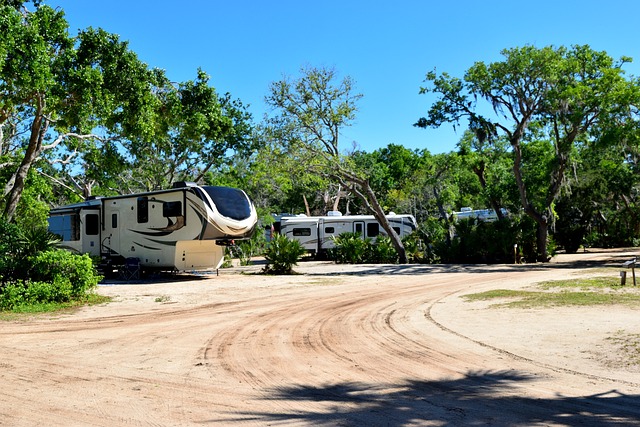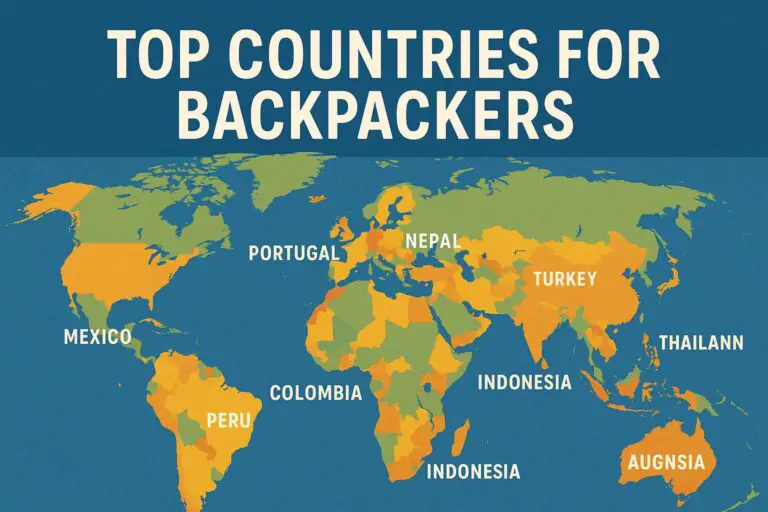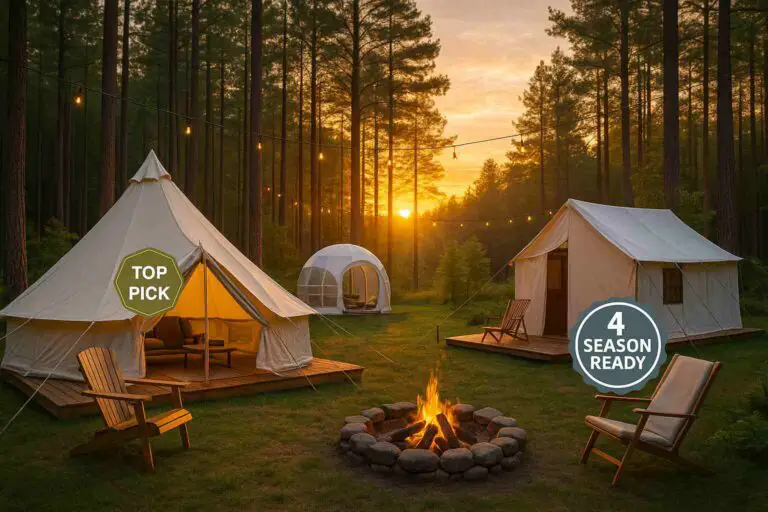Camping is a popular recreational activity enjoyed by many people around the world. Whether it’s in a tent, RV, or cabin, camping offers a chance to escape the hustle and bustle of everyday life and reconnect with nature. However, while camping can be a great way to unplug, many campers still rely on electricity for various amenities such as lighting, cooking, and charging devices. This raises the question: do camping sites have electricity?
Camping sites may or may not have electricity, depending on the type of camping site and the amenities offered. Primitive camping sites typically do not have electricity, while RV camping sites usually offer electrical hookups. Tent camping sites and cabin camping sites may or may not have electrical hookups, depending on the location and season.
In this article, I’ll explore the types of camping sites that may offer electricity, the different types of electrical hookups available, how to find camping sites with electricity, and alternative power sources for camping. So, if you’re planning a camping trip and wondering about electrical access, keep reading!
Types of Camping Sites
There are different types of camping sites, each offering a different level of amenities and services. The likelihood of a camping site having electricity depends on the type of site.
- Primitive Camping Sites– Primitive camping sites are usually located in remote areas and offer minimal facilities. These sites often have no running water or electricity. Campers must bring their own equipment, such as a tent and portable stove, and rely on their own resources for basic needs.
- Tent Camping Sites- Tent camping sites are more developed than primitive sites, with designated campsites and basic facilities such as bathrooms and picnic tables. Some tent camping sites may offer electricity, but it’s not guaranteed. In some cases, electrical hookups may be available for a fee.
- RV Camping Sites- RV camping sites are designed for recreational vehicles and usually offer electrical hookups. These sites may provide 30-amp or 50-amp electrical service. However, the availability of electrical hookups may depend on the location and season, so it’s important to check ahead of time.
- Cabin Camping Sites – Cabin camping sites are similar to tent camping sites but offer more comfortable accommodations. These sites may have electricity, but it’s not guaranteed. Some cabins may have outlets to charge devices, but others may require campers to bring their own portable power sources.
Overall, the likelihood of a camping site having electricity depends on the type of site and the amenities offered. It’s important to research and plans to ensure that your camping trip meets your electrical needs.
Amenities Provided by Camping Sites
Camping sites offer a range of amenities that can enhance the camping experience, and electricity is often a crucial part of these amenities. Here are some common amenities provided by camping sites:
- Restrooms and Showers- Most camping sites offer restrooms and showers to campers. These facilities may have electrical outlets for campers to use.
- Picnic Tables and Fire Rings- Picnic tables and fire rings are common features at camping sites. Some camping sites may have electrical outlets near picnic tables to allow for outdoor cooking with electric appliances.
- Water and Sewer Hookups- RV camping sites may offer water and sewer hookups for convenience. These hookups may be paired with electrical hookups to provide a complete camping experience.
- Wi-Fi Access- Some camping sites may offer Wi-Fi access for campers. While not essential for camping, Wi-Fi access can help campers stay connected with the outside world or provide entertainment during downtime.
- Recreational Facilities- Many camping sites offer recreational facilities such as swimming pools, playgrounds, and sports fields. These facilities may require electricity to operate equipment or lighting.
Electricity is often a crucial part of these amenities, whether it’s for charging devices, outdoor cooking, or powering recreational facilities.
Types of Electrical Hookups
Camping sites that offer electricity typically provide different types of electrical hookups to accommodate various camping equipment. Here are the two main types of electrical hookups:
- 30-Amp Electrical Hookups 30-amp electrical hookups are common at camping sites and provide up to 3,600 watts of power. These hookups typically have three prongs and are designed for smaller camping equipment such as pop-up campers or smaller RVs. Campers with 30-amp hookups can use appliances such as air conditioners, refrigerators, and microwaves.
- 50-Amp Electrical Hookups 50-amp electrical hookups provide up to 12,000 watts of power and are designed for larger RVs and motorhomes. These hookups typically have four prongs and can provide power for multiple appliances at once, including air conditioners, refrigerators, and electric water heaters.
It’s important to note that not all camping sites offer both types of electrical hookups. Some sites may only offer 30-amp hookups, while others may only offer 50-amp hookups. It’s important to check ahead of time to ensure that the camping site can accommodate your camping equipment.
Additionally, it’s important to use the correct type of electrical hookup for your camping equipment to prevent damage or electrical issues. Always consult your camping equipment manual or a professional if you’re unsure about which type of electrical hookup to use.
How to Find Camping Sites with Electricity
Finding camping sites with electricity is essential for campers who rely on electrical equipment during their camping trip. Here are some ways to find camping sites with electricity:
- Online Campground Directories: Online campground directories such as ReserveAmerica, Recreation.gov, and Campendium allow campers to search for camping sites with electrical hookups. These directories provide detailed information on camping sites, including the amenities offered and the types of electrical hookups available.
- Camping Guidebooks: Camping guidebooks such as Woodall’s Campground Directory and the Trailer Life RV Parks, Campgrounds, and Services Directory provide detailed information on camping sites across the United States. These guidebooks include information on the amenities offered, the cost per night, and the types of electrical hookups available.
- Camping Apps: Camping apps such as AllStays and RV Parky provide campers with information on camping sites with electrical hookups. These apps allow users to search for camping sites by location, amenities, and type of electrical hookup.
- State and National Park: Websites State and national park websites provide information on camping sites within their parks. These websites typically include information on the amenities offered and the types of electrical hookups available.
When searching for camping sites with electricity, it’s important to research and reserve campsites ahead of time, especially during peak camping seasons. Many camping sites with electrical hookups fill up quickly, so it’s important to plan ahead to ensure a comfortable camping experience.
Alternative Power Sources for Camping
While many camping sites offer electrical hookups, some campers may prefer alternative power sources for their camping needs. Here are some alternative power sources for camping:
- Generators: Generators provide portable power for camping equipment such as refrigerators, lights, and portable heaters. These devices run on gasoline or propane and produce electricity through an internal combustion engine. Generators can be noisy and emit fumes, so it’s important to use them in well-ventilated areas.
- Solar Panels: Solar panels provide a clean and renewable source of energy for camping equipment. These panels convert sunlight into electricity, which can be used to charge devices or power appliances. Solar panels can be a bit pricey, but they are a good long-term investment for campers who enjoy extended camping trips.
- Battery Packs: Battery packs provide a portable and rechargeable source of power for camping equipment. These packs typically use lithium-ion batteries and can be charged through a wall outlet or a solar panel. Battery packs are lightweight and easy to transport, making them ideal for backpackers and hikers.
- Portable Power Stations: Portable power stations provide a convenient source of power for camping equipment. These devices are essentially large battery packs with built-in inverters, which convert DC power into AC power. Portable power stations can be charged through a wall outlet or a solar panel, and they can power multiple devices simultaneously.
When choosing an alternative power source for camping, it’s important to consider factors such as power output, portability, and noise level. It’s also important to follow safety guidelines when using alternative power sources to prevent electrical shock or fire hazards.
Conclusion
In conclusion, camping sites offer a range of amenities and services that can enhance the camping experience, including electricity. The availability of electrical hookups depends on the type of camping site and the season, so it’s important to research and plan to ensure that your camping trip meets your electrical needs.
Different types of electrical hookups are available to accommodate various camping equipment, such as 30-amp and 50-amp hookups. If camping sites with electrical hookups are not available, there are alternative power sources for camping, such as generators, solar panels, battery packs, and portable power stations. By considering these factors and using the right alternative power source, campers can enjoy a comfortable and enjoyable camping trip with the convenience of electricity.
You might also like this article: Are Camping Timeshares Worth It?








